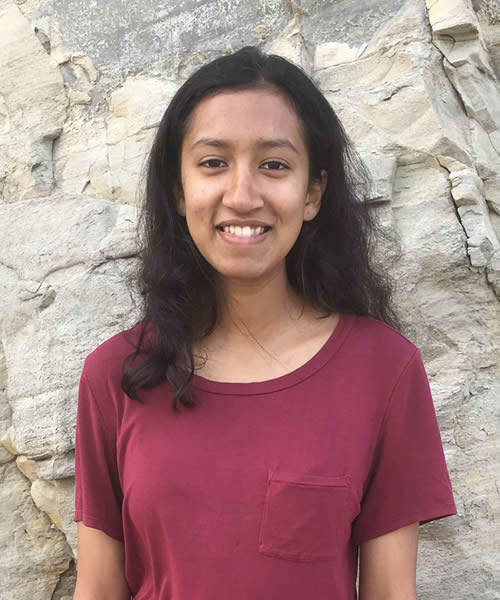One of the things I did not expect about studying abroad was re-evaluating the saliency of my various identities—cultural and ethnic, in particular. Until my experience in Chile, I considered my socioeconomic background my most significant identity since it shaped how I navigated the world as well as my sense of belonging to many spaces. After seeing how much of my difference in Chile was rooted in my cultural and ethnic background, I’ve come to consider my ethnic background just as important.
I returned to the topic of gringa with my host mother a few weeks later. She defined it as someone from the United States or Europe—“basically someone who’s not from Latin America.” The term gringa does not have a singular definition, which made it harder in that initial moment for me to conclude whether I was being otherized. The meaning of gringa embedded in my mind when I began my semester in Chile was the caricature of an obnoxious white individual from the United States who ignored local customs and traditions either intentionally or from genuine ignorance. This version consisted of racial and behavioral components. The other definition, however, is simple, all-encompassing, and often used without any intent of hostility: someone who is not from Latin America. This definition lacks any racial requirement and focuses more on nationality, rendering me a gringa. In my host mother’s statement, however, there was an unspoken suggestion that there is a “typical gringa,” who is white and Christian. In her imagination, I was “atypical” because I am neither of those things. After all, Asians and Africans weren’t referred to as gringas even though they, too, like U.S. citizens and Europeans, were not from Latin America, either.
Accordingly, I didn’t like being referred to as a gringa. My dislike of the word came from the fact that the way in which Chileans envisioned a gringa did not capture my experiences. They mainly imagined the experiences of my peers, who are predominantly white and come from middle- to upper-class backgrounds. My parents, who are working-class Muslim and Bengali immigrants, resisted assimilation to varying degrees—lending me a different experience of American culture. Not knowing what the term “neuter” meant (because in Islam dogs are considered unclean and thus many Muslim households do not have pets) was met insensitive and obnoxious shock from my peers. Being subsequently asked “Do you even know what dogs are?!?!” was not only disappointing, but also eliminated any desire to explain where I was coming from. It was difficult for me to reconcile the irony of the liberal platitudes about multiculturalism and representation heralded by my classmates with their own shortcomings in affording me—someone from the same country—that same right to difference without judgment that they offered those from outside the United States. I became conscious of the supposed markers of my non-Americanness that introducing myself with “I was born in the United States, but my parents are from Bangladesh” became an equally flawed attempt at cautioning Chileans about my “difference.” Both approaches run the risk of perpetuating cultural essentialism, or suggesting that Bengalis or Muslims behave in one particular way.
Identities are complex, dynamic, and layered. The terms “avowed” and “ascribed” identities are concepts that acknowledge how our identities are defined by others as well as ourselves. Our group chat among the students was called “SIT Gringas,” a name that appeared to demonstrate our self-awareness and understanding of how our presence in Latin America as U.S. citizens was registered. Carrying this supposed act of self-awareness with me, I thought I was being conscientious and respectful to other South Americans in Chile when I referred to myself as a gringa, only to be told, “You can’t use that word, that is for us”—not for the gringa herself to use. I had transgressed what seemed like rules of Latin American Spanish that I didn’t know about before. I wondered whether use of the term being reserved for Latin Americans was a means to retain its condemnatory power against countries that had exacerbated conditions in Latin America and, by extension, for its nationals. I further questioned if right to the word was rooted in a history of hurt and oppression that I was inappropriately, but mistakenly, claiming as my own. The internal tension I experienced trying to sort out my public identity became intense and more confusing.
From my host families, I listened to stories about how students of color before me often stuck with one another because they felt they were the only ones who could understand each other. While specific statistics are not available, a few sources generally show that white students make up more than the majority of study-abroad programs, which has several consequences. First, the issues of representation that affect U.S. society are undoubtedly reproduced abroad through these study-abroad programs. Second, the lack of diversity in these programs only perpetuates the imaginary of a gringa as someone who is white and wealthy. I wish that we could move away from thinking about diversity only in terms of race, gender, and socioeconomic status. But it seems that for now, these are the terms in which diversity will be popularly understood as it is studied in academia using the same framework.
I am not “atypical,” and neither is my experience. If I am a gringa atípica in the sentiment that my host mother intended, the world should see and meet more of those whose experiences stray away from the “typical.” I invite admissions counselors of study abroad programs—who function as gatekeepers of cultural exchange—to make a deeper commitment to reflect the diversity of the societies in which they live. Only in that way, as a starting point, will these programs accomplish the purpose of their existence: to understand the diversity and complexity of global societies.

